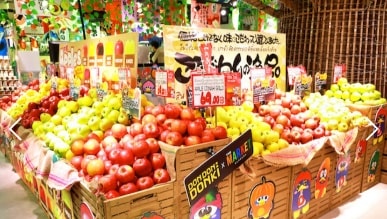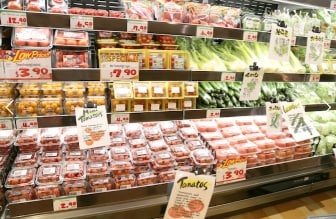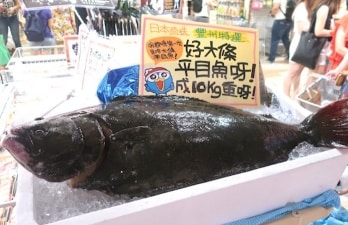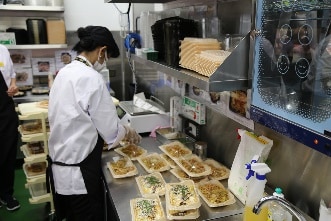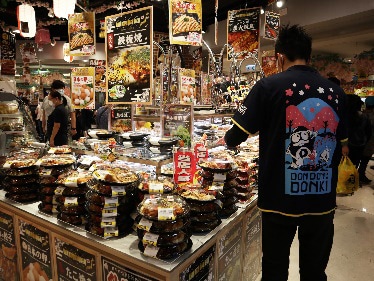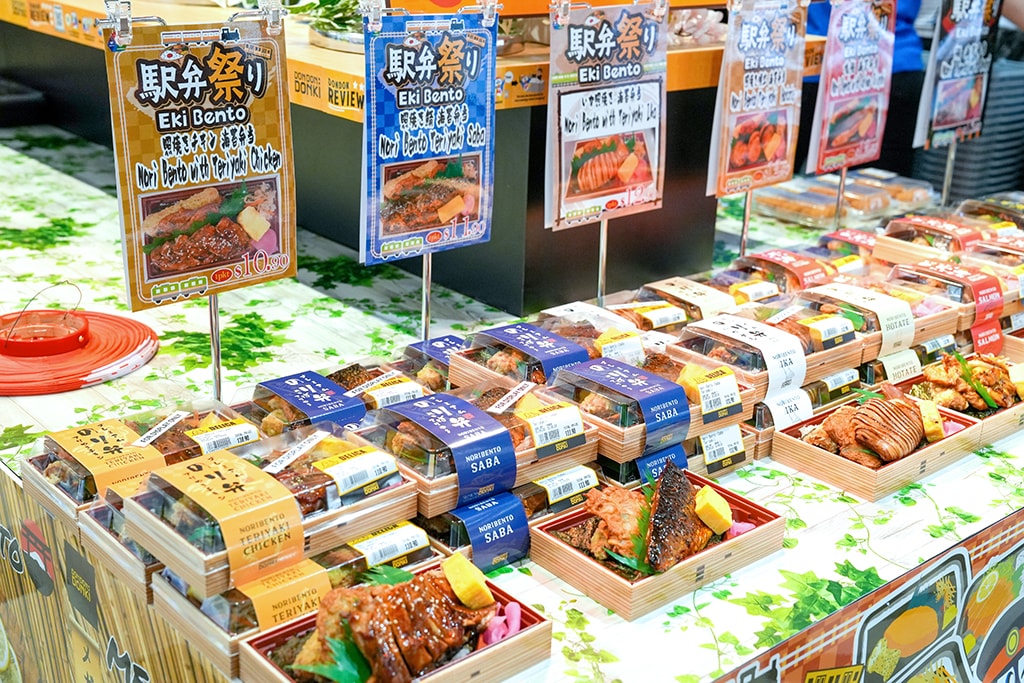Reduce CO₂ emission
-PPIH Group decarbonization targets
Subject: Domestic, including offices and a logistics center
[Major initiatives to achieve the target]
- (1)Improving the efficiency of energy use in store operations and reducing energy consumption by installing control equipment for air conditioning and refrigerated/frozen cases and dimming equipment for lighting, and by ensuring that temperature settings and lighting hours are appropriate.
- (2)Creation of renewable energy sources including solar power generation
- (3)Replacement with renewable energy through the use of non-fossil certificate transactions
Appropriate use of electricity and operational improvements in order to reduce energy use
In order to reduce the environmental impact of its store operations, the PPIH Group has introduced control equipment for air conditioning and refrigerated/frozen cases, inverter equipment, and dimming equipment for lighting to optimize the use of electricity. We are also working to reduce CO₂ emissions by optimizing temperature settings and lighting hours, and by replacing equipment that uses less energy than before.
In addition, UNY has obtained ISO 14001 certification for its environmental management system at its head office and all of its stores. As one of the ISO environmental goals, and has set targets for reducing the consumption of electricity, gas, and heavy oil at each of it's stores, and is promoting energy saving efforts.
-Number of stores with energy-saving equipment installed (as of June 2022)
Air conditioning equipment: 351 stores
Refrigerated and freezer cases: 17 stores
-Number of ISO14001-certified stores (as of June 2023)
131 stores (certification rate among GMS stores in Japan: 100%).
*ISO14001-certified corporation: UNY Co., Ltd.
Implementing renewable energy
In order to promote business activities with less environmental impact, we operate our stores using renewable energy and reduce CO₂ emissions through our business activities.
-Number of implemented stores:
17 stores (as of November 2023)
-Amount of solar power generated:
1,426,384kwh (April 2022 - March 2023)

MEGA Don Quijote Kofu Store

MEGA Don Quijote Sendaitomiya Store

Piago Bisai Store

Piago Kakamigahara Store
Reduction of CO₂ emissions in logistics
Implementation of Modal Shift
A logistics partner, the SENKO Group, has been using truck transportation for the entire distance between its Kanto (Saitama City, Saitama Prefecture) and Kansai (Izumiotsu City, Osaka Prefecture) bases, but has switched to rail transportation (modal shift) for a part of the distance in order to reduce environmental impact. In implementing the modal shift, there were some issues such as waiting time during loading/unloading and longer cargo handling time, but we were able to adjust the time and quantity of cargo and achieved a significant reduction in terms of CO₂ emissions and driver operating time.
-Reduction effects
| Based on annual transportation results | Before conversion | After conversion | Impact |
|---|---|---|---|
|
CO₂ emissions |
121 |
34 |
-87 |
|
Operating hours |
1,680 |
300 |
-1,380 |
*CO₂ emissions are calculated using the revised ton-kilometer method
*Data calculation period
Before conversion: July 2020 to June 2021
After conversion: July 2021 to June 2022
Exporting Japanese products by the shortest route transportation
PPIC, the Group's partnership organization for expanding exports of Japanese agricultural, livestock, and fishery products, provides the shortest route transportation for direct exports from production areas. By exporting products overseas without passing through Tokyo and other depots, we are able to shorten the conventional domestic overland transportation distance and contribute to the reduction of CO₂ emissions.
As an example, when Sweet Potatoes from Kagoshima Prefecture are exported via Tokyo, the distance traveled is approximately 1,400km for domestic transportation alone, but by exporting directly from the production area to overseas, the distance traveled can be reduced to approximately 30km, a 98% reduction. In addition, temperature-controlled containers are used to transport agricultural products from Japan, ensuring that the freshness of agricultural products is maintained even during shipping to overseas stores. Appropriate temperature control prevents damage to the products and significantly reduces waste during the export period. In addition, products that lose their freshness during the sales process are used for side dishes prepared in the store in order to reduce food loss.
